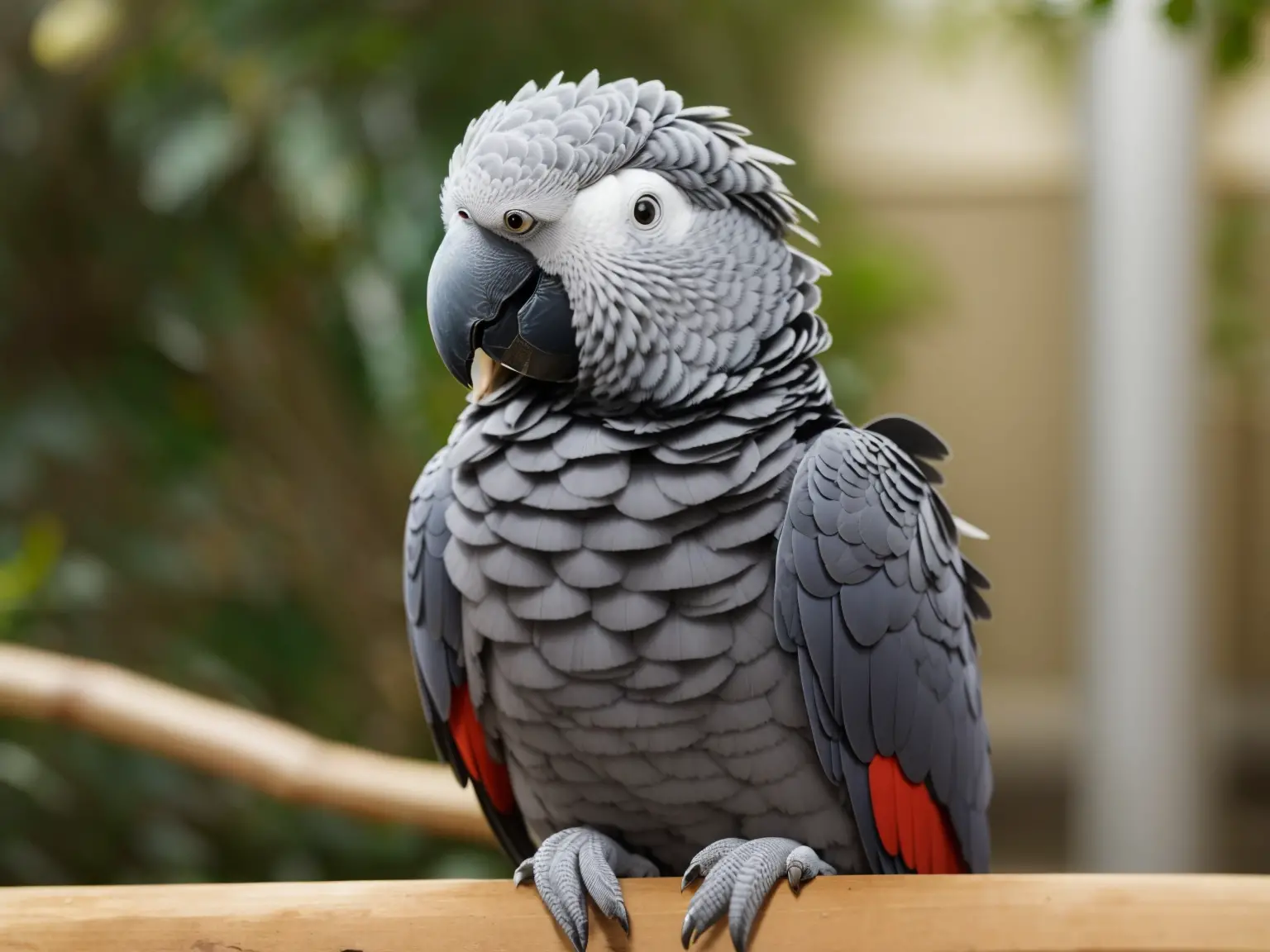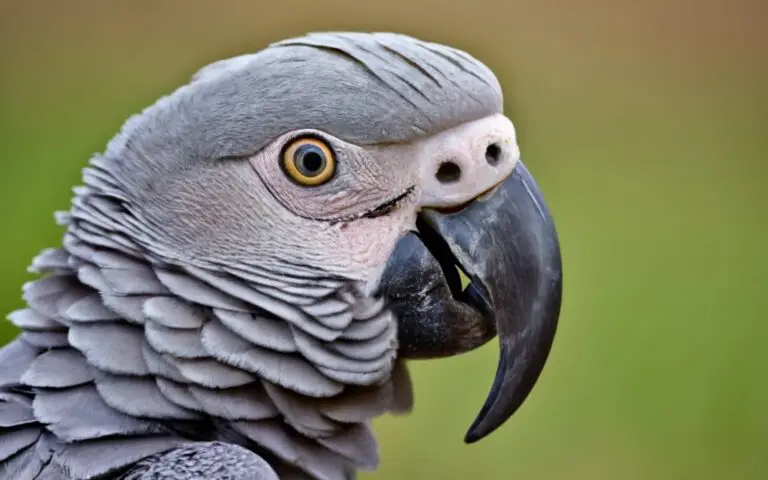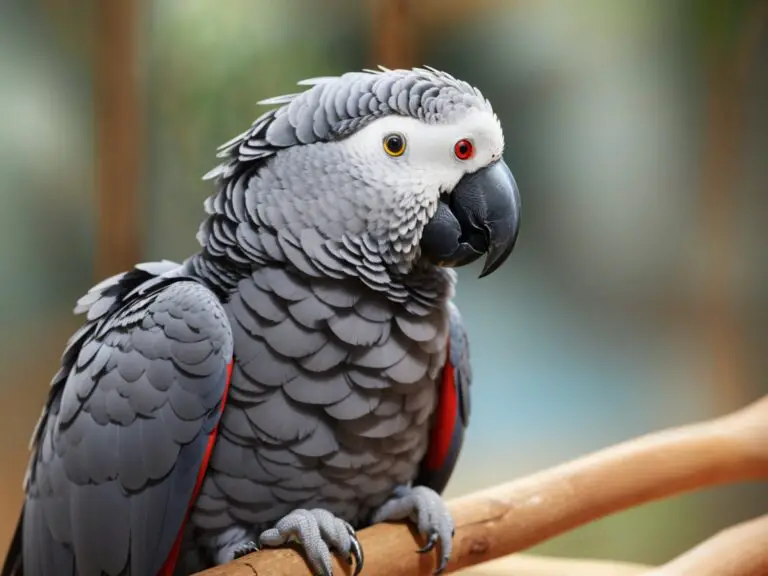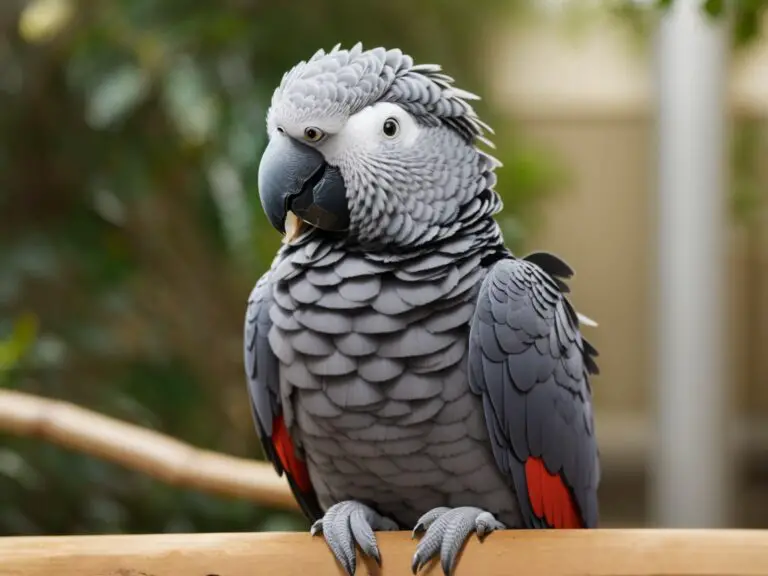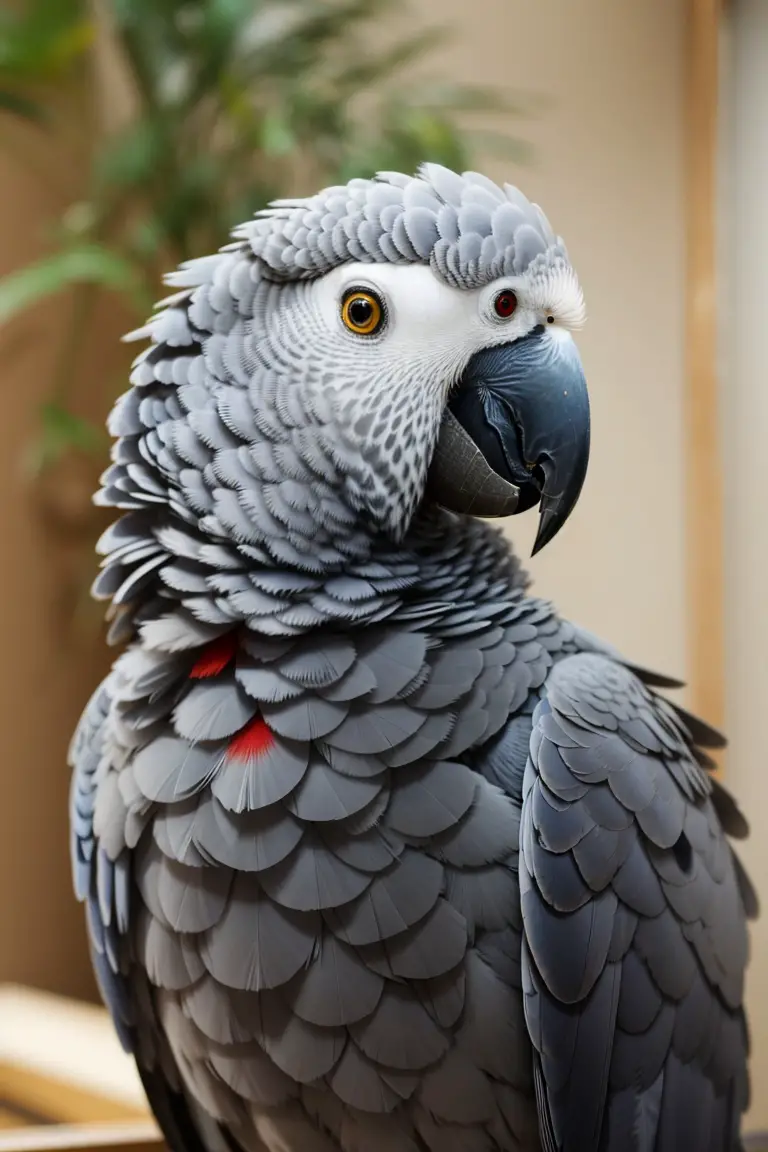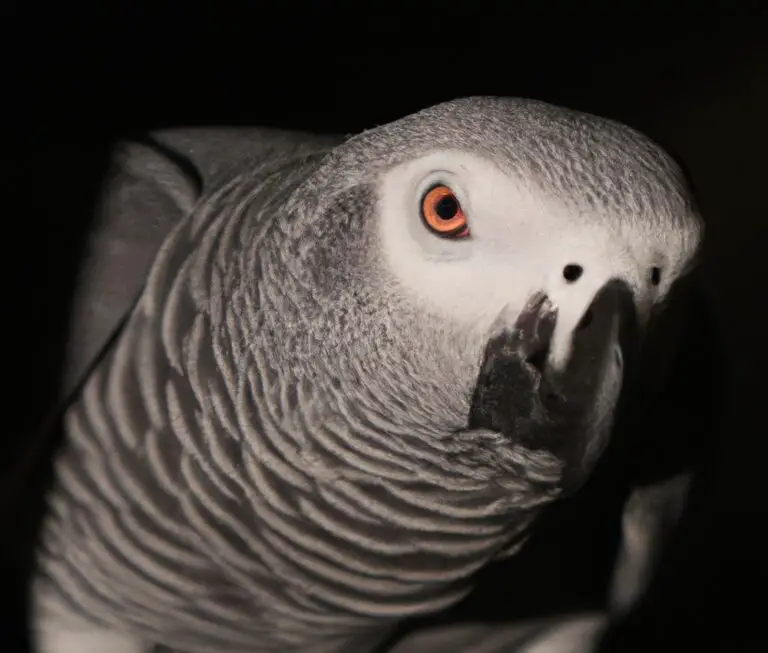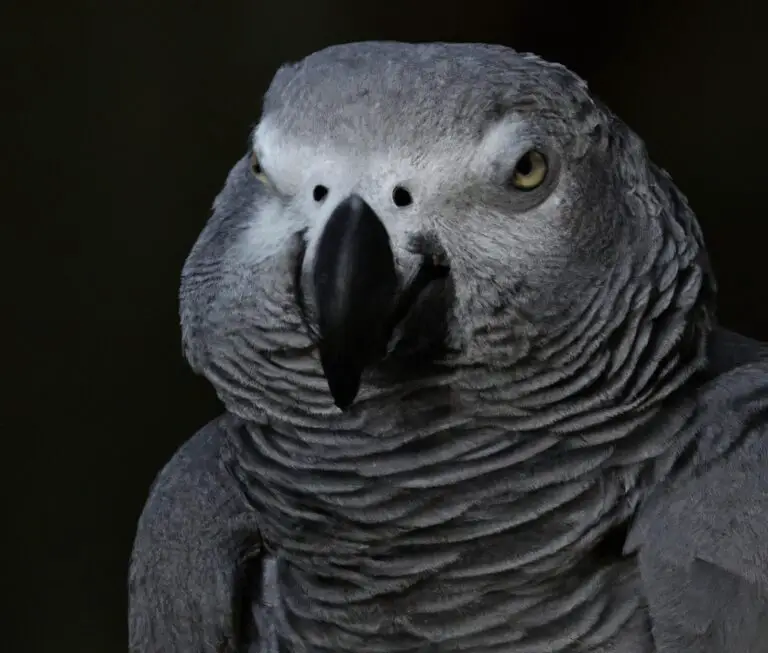Are African Grey Parrots Good Family Pets?
Key Takeaways:
- African grey parrots can make good family pets, but require a significant amount of time, attention, and mental stimulation.
- They are highly intelligent and often develop strong bonds with their owners, but can also become easily bored or distressed if neglected.
- African grey parrots have impressive mimicry skills and can learn to imitate human speech, making them entertaining and interactive companions.
- However, they have a long lifespan and need a lifelong commitment from their owners to provide proper care and meet their specific physical and emotional needs.
Are African grey parrots good family pets?
If you’re considering adding a feathered friend to your family, these intelligent and affectionate parrots might just be the perfect fit.
Known for their problem-solving skills and extraordinary ability to mimic human speech, African grey parrots are sure to bring entertainment and companionship into your home.
However, before making the decision to bring one of these magnificent birds into your family, there are some important factors to consider.
From their lifespan and space requirements to their training needs and potential challenges, it’s crucial to fully understand what it takes to care for an African grey parrot.
In this article, I will delve into the characteristics of African grey parrots, discuss the factors to consider before getting one, explore their compatibility with family life, offer tips on training and socialization, provide insights into caring for them, and answer some frequently asked questions about African grey parrots as family pets.
So, if you’re curious about whether African grey parrots make good family pets, keep reading to find out everything you need to know.
| Criteria | Pros | Cons |
| Intelligence | African grey parrots are highly intelligent and can learn a wide vocabulary. They can engage in interactive play and problem-solving activities. | They may get bored easily and may exhibit behavioral problems if not given enough mental stimulation. |
| Longevity | African grey parrots can live up to 50-60 years with proper care, meaning they can be long-term companions. | Their long lifespan requires a long-term commitment from the owner. |
| Bonding | They have the potential to form strong bonds with their owners and can be affectionate and loyal. | They may develop a preference for one person and may become aggressive or anxious around others. |
| Noise | African grey parrots are known for their ability to mimic sounds, including human speech. They can be entertaining and fun to interact with. | They can be loud, especially when they are bored or seeking attention. |
| Maintenance | They do not require extensive grooming, but regular interaction and mental stimulation are necessary to keep them happy and healthy. | They may have specific dietary needs and can be prone to certain health issues, requiring regular veterinary care. |
Characteristics of African Grey Parrots
African Grey Parrots have remarkable intelligence and problem-solving skills.
They are known for their exceptional talking and mimicking ability.
Intelligence and Problem-Solving Skills
African Grey Parrots are known for their exceptional intelligence and problem-solving skills.
They have the ability to understand complex concepts and solve puzzles.
This makes them highly trainable and capable of learning a wide range of tricks and behaviors.
They can also use their problem-solving skills to entertain themselves and overcome challenges in their environment.
Their intelligence allows for engaging interactions and a stimulating companionship experience.
Talking and Mimicking Ability
African Grey Parrots are renowned for their exceptional talking and mimicking ability. They have the intelligence and vocal capabilities to mimic human speech, environmental sounds, and even music.
With proper training and social interaction, they can develop an extensive vocabulary and communicate in a meaningful way.
Some African Grey Parrots have been known to mimic the voices of their owners and other family members with astonishing accuracy and clarity. They can also imitate various sounds and noises in their surroundings, adding a unique and entertaining element to their repertoire.
Social and Affectionate Nature
African Grey Parrots are known for their social and affectionate nature. They form strong bonds with their owners and enjoy being part of the family.
They thrive on social interaction and require daily attention and stimulation to keep them happy.
With proper care, African Grey Parrots can be loving and loyal companions.
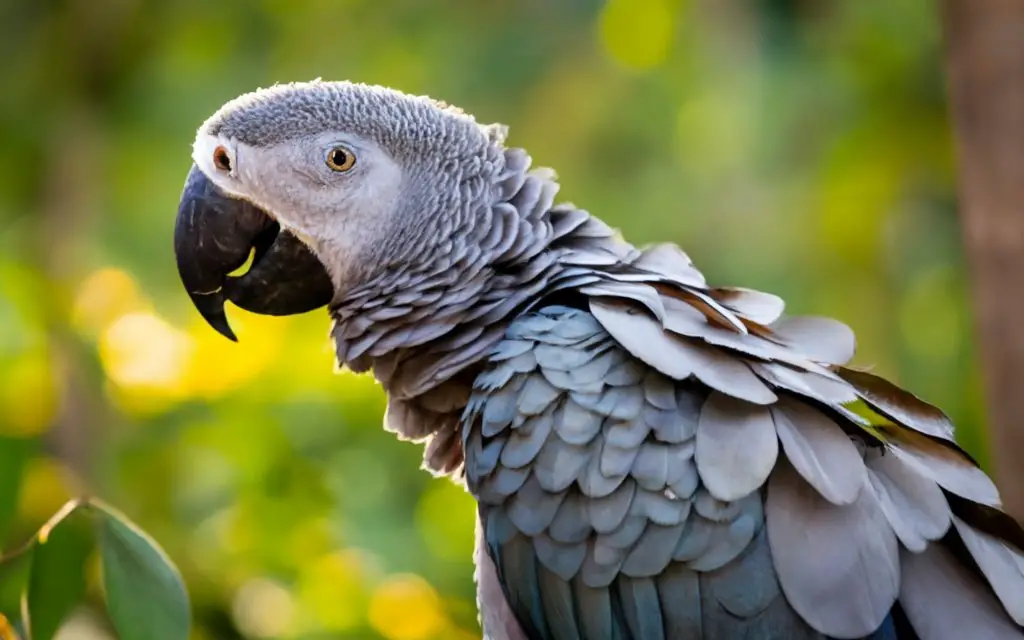
Factors to Consider Before Getting an African Grey Parrot
Before deciding to get an African Grey parrot, there are some important factors you should consider.
Lifespan and Commitment
The lifespan of an African Grey Parrot can range from 40 to 60 years, so owning one is a long-term commitment.
They require daily interaction, mental stimulation, and socialization.
You’ll need to provide a suitable environment, nutritious diet, and regular veterinary care.
Be prepared for a lifelong companionship with your African Grey Parrot.
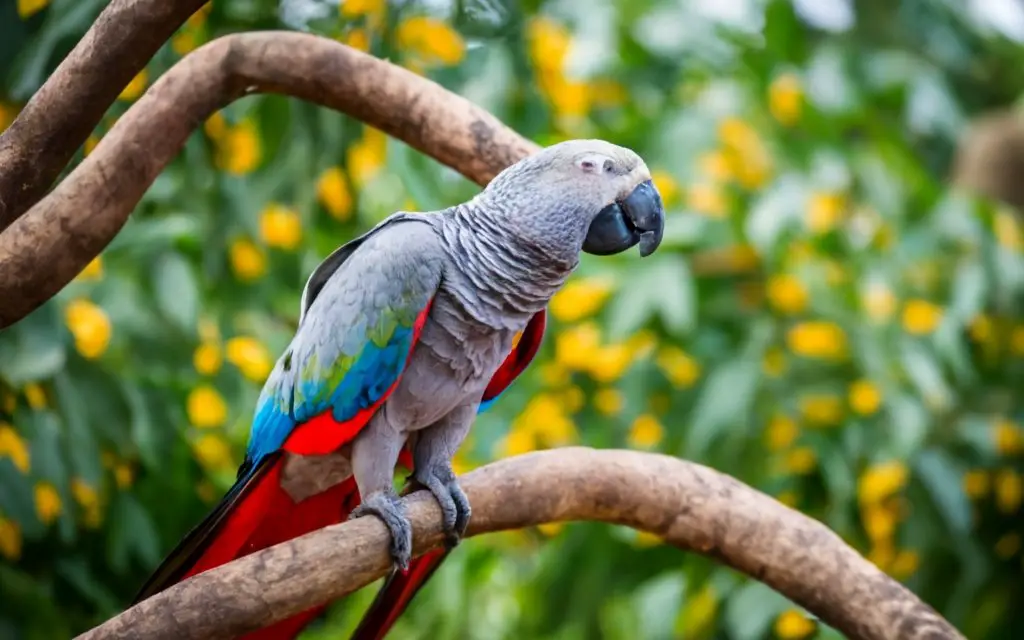
Space and Noise Requirements
African Grey Parrots require a spacious cage as they are highly active birds.
The minimum cage size should be around 3 feet by 2 feet by 3 feet.
They also need plenty of out-of-cage time to exercise and explore.
Regarding noise, African Greys are known to be vocal and can be quite loud at times.
So, if you live in an apartment or have noise-sensitive neighbors, this might be something to consider.
Training and Mental Stimulation Needs
African Grey Parrots are highly intelligent, and training is essential to keep their minds active.
They thrive on mental stimulation, such as puzzles, toys, and learning new tricks.
Regular training sessions and providing a variety of enrichment activities will help keep them engaged and prevent boredom.
Interaction with their human family members is crucial for their mental well-being.
African Grey Parrots and Family Life
African Grey Parrots can make excellent additions to a family due to their ability to bond with family members, interact well with children and other pets, and adapt to family routines.
Bonding with Family Members
African grey parrots have the potential to form strong bonds with their human family members. They enjoy spending time with their owners and can become very affectionate.
Regular interaction, such as talking, playing, and petting, can help strengthen the bond.
It’s important to give them plenty of attention and socialization to ensure a happy and fulfilling family relationship.
Interaction with Children and Other Pets
African Grey parrots can have positive interactions with children and other pets. With proper socialization and supervision, they can form strong bonds with children and enjoy playing and interacting with them.
They can also get along well with other pets in the household, such as dogs and cats, as long as introductions are done gradually and under supervision.
It’s important to teach children how to handle the parrot gently and respectfully.
Adaptability to Family Routines
African Grey Parrots have the ability to adapt to family routines and can quickly become a part of your daily life. They enjoy being involved in the household activities and can easily adjust to your schedule.
However, it is important to provide them with a consistent routine and ensure that they have enough mental stimulation and social interaction throughout the day.
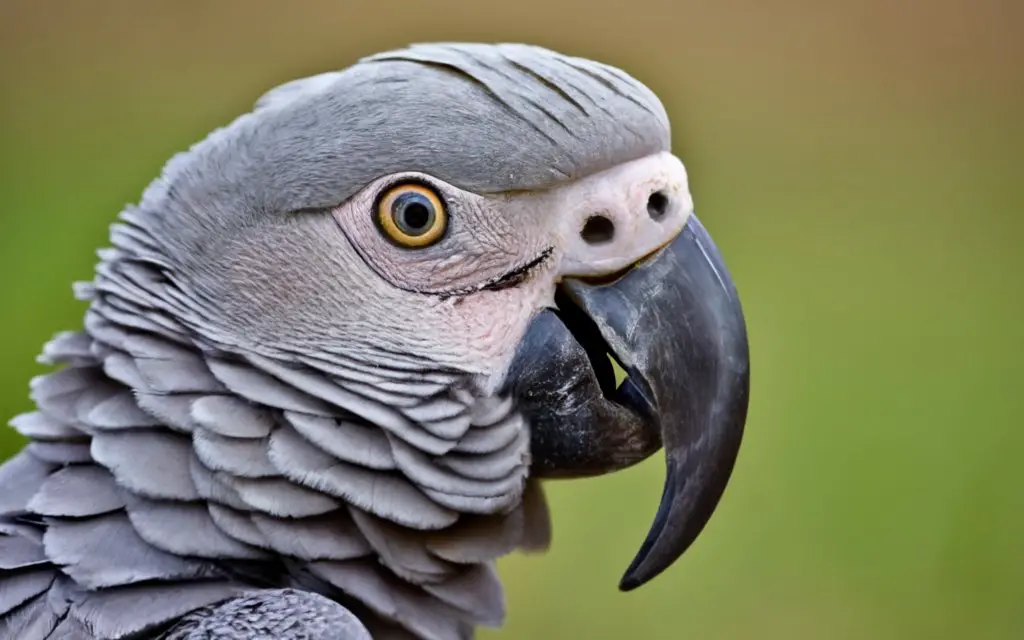
Caring for an African Grey Parrot
Caring for an African Grey Parrot involves providing proper nutrition, exercise, enrichment, and regular veterinary care.
Nutrition and Feeding
Nutrition and feeding are essential aspects of caring for an African Grey Parrot. Provide a balanced diet that includes high-quality pellets, fresh fruits, vegetables, and occasional nuts.
Avoid feeding them toxic foods like chocolate, avocado, and caffeine.
Clean water should be readily available at all times. Vitamin and mineral supplements are generally not necessary if their diet is well-rounded.
Regularly monitor their weight and adjust their diet accordingly.
Exercise and Enrichment
Exercise and enrichment are crucial for the physical and mental well-being of African Grey Parrots. Providing opportunities for daily exercise, such as flight time outside the cage or a spacious play area, is essential.
Enrichment activities like puzzle toys, foraging opportunities, and social interaction with their human family members are also important to keep them engaged and prevent boredom.
Remember to vary the activities to keep their curious minds stimulated!
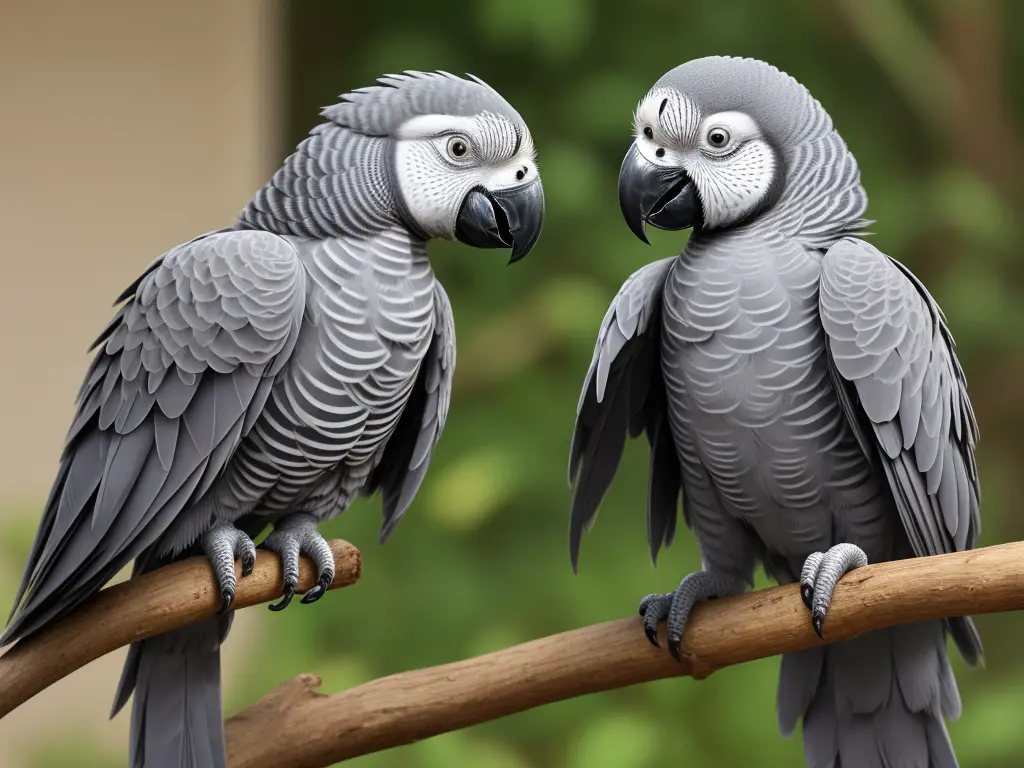
Common Health Issues and Veterinary Care
African Grey Parrots are prone to certain health issues, so regular veterinary check-ups are essential.
Some common health issues include feather plucking, respiratory infections, nutritional deficiencies, and beak and feather disease.
A proper diet, clean environment, and regular exercise can help prevent these issues.
If you notice any signs of illness, such as a change in appetite or behavior, it’s important to seek veterinary care promptly.
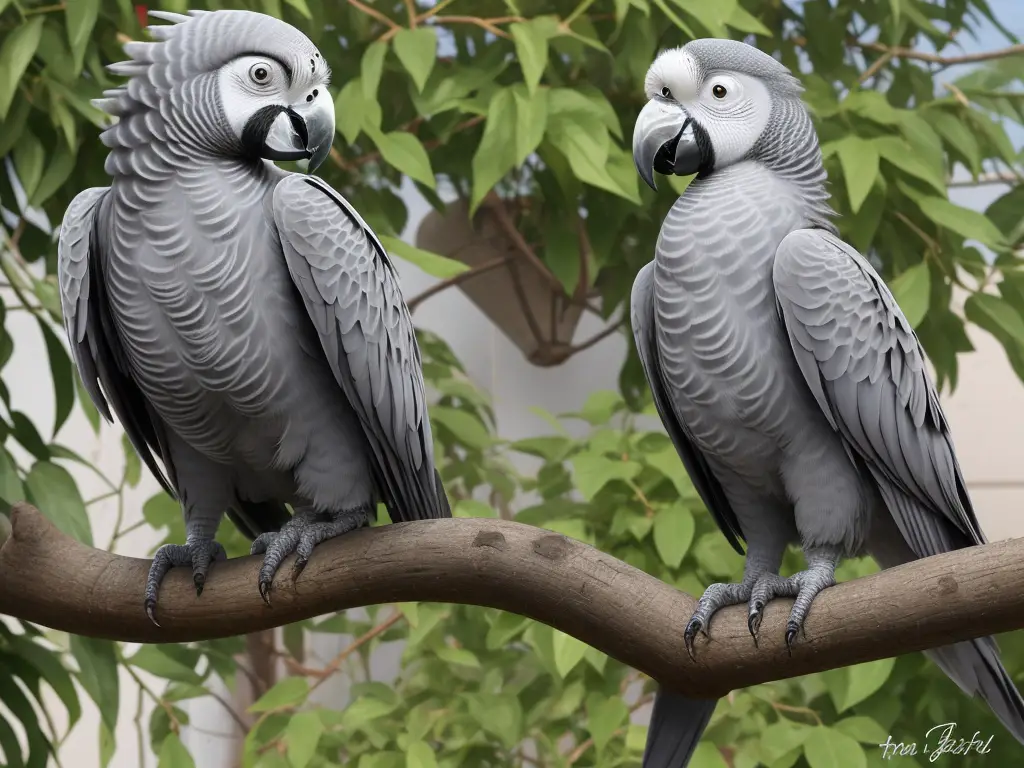
Potential Challenges of Owning an African Grey Parrot
Owning an African Grey Parrot can come with challenges such as noise and vocalization, destructive behavior, and the need for mental stimulation and social interaction.
Noise and Vocalization
African Grey Parrots are known for their intelligence and ability to mimic sounds, including human speech.
They can be quite noisy, especially during the morning and evening.
However, their vocalizations can be minimized through proper training, mental stimulation, and environmental enrichment.
Providing them with toys, puzzles, and regular interaction can help keep them occupied and reduce excessive noise.
Potential for Destructive Behavior
African Grey Parrots have the potential for destructive behavior due to their high intelligence and need for mental stimulation.
They may chew on furniture, household items, or even their own feathers if they are bored or not given enough mental and physical exercise.
Providing them with plenty of toys, training, and interactive playtime can help prevent destructive behavior.
Need for Mental Stimulation and Social Interaction
African Grey Parrots have a high need for mental stimulation and social interaction.
They are highly intelligent birds that require mental challenges to keep them engaged and prevent boredom.
Without enough mental stimulation, they can develop behavioral issues.
Social interaction is also crucial for their well-being.
They thrive on spending time with their human companions and need regular social interaction to stay happy and mentally healthy.
Regular playtime, training sessions, and socializing with family members are important for meeting their needs.
Training and Socialization Tips
When training an African grey parrot, focus on positive reinforcement and reward-based training methods. Socialize your parrot with different family members to ensure they feel comfortable and bonded with everyone.
Positive Reinforcement and Reward-Based Training
Positive reinforcement and reward-based training are highly effective methods for training African grey parrots. By using positive reinforcement, such as verbal praise, treats, or toys, you can motivate your parrot to engage in desired behaviors.
This approach helps build a strong bond with your parrot and encourages them to learn in a positive and rewarding environment.
Consistency and patience are key in this training method.
Socializing with Different Family Members
When socializing with different family members, African Grey Parrots are generally adaptable and can form strong bonds.
They enjoy interacting and spending time with their human family members, including children.
It’s important to introduce them gradually, supervise interactions, and ensure that everyone understands the proper way to handle and interact with the parrot.
Establishing a consistent routine and including the parrot in family activities can help them feel like a valued part of the family.
Introducing the Parrot to New Experiences
To introduce your African Grey Parrot to new experiences, start by taking it slow and allowing the bird to observe from a distance. Gradually increase the level of exposure, providing positive reinforcement and rewards.
Use treats or favorite toys as motivation to help the parrot associate the new experience with something positive.
Patience and consistency are key in ensuring a successful introduction.
Frequently Asked Questions about African Grey Parrots as Family Pets
Can African Grey Parrots be left alone for long periods?
No, African Grey Parrots cannot be left alone for long periods. They are highly social and intelligent birds that require mental stimulation and social interaction.
Leaving them alone for extended periods can lead to boredom, loneliness, and behavioral issues.
It’s important to provide them with companionship and engage them in activities when you’re not around.
How do African Grey Parrots interact with children?
African Grey Parrots can have a positive and interactive relationship with children. They are known to be gentle, social, and intelligent birds.
They can bond with children through playtime, talking, and mimicking.
Supervision is important to ensure the safety of both the parrot and the child.
How long does it take to train an African Grey Parrot?
Training an African Grey Parrot requires dedication, patience, and consistency.
It can take several months to years to fully train an African Grey Parrot, depending on the individual bird and the complexity of the training tasks.
Regular training sessions and positive reinforcement techniques are key to successful training.
Are African Grey Parrots suitable for first-time bird owners?
African Grey Parrots may not be the best choice for first-time bird owners due to their complex needs.
They require a lot of attention, mental stimulation, and social interaction.
They can be demanding and need experienced owners who understand their high intelligence and strong personalities.
Final Verdict
African Grey Parrots possess remarkable intelligence, talking abilities, and social nature, which make them ideal family pets.
However, potential owners must consider the long-term commitment, space and noise requirements, and the need for training and mental stimulation.
These parrots can form strong bonds with family members, interact well with children and other pets, and adapt to family routines.
Proper nutrition, exercise, and veterinary care are crucial for their well-being.
While there are challenges, such as noise and the need for mental stimulation, with positive reinforcement training and socialization, these challenges can be managed effectively.
African Grey Parrots can bring joy, companionship, and endless fascination to families willing to provide the care and attention they require.

